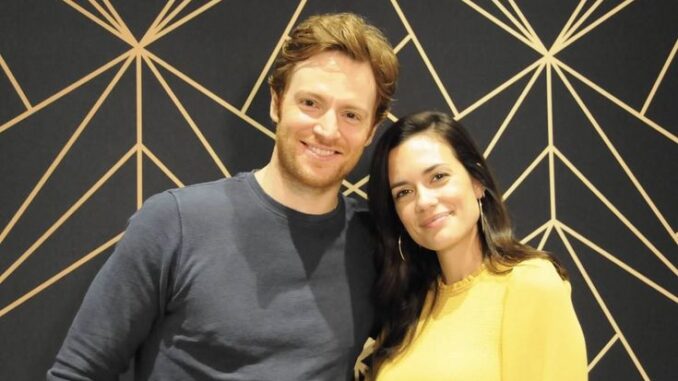
The human body, in its wondrous complexity, often holds both the promise of life and the specter of unforeseen challenges. The journey from the abstract concept of a medical diagnosis to the profound reality of parenthood is a crucible, testing the limits of science, emotion, and endurance. For a show like Chicago Med, known for its unflinching portrayal of medical and ethical dilemmas, a hypothetical Season 11 tackling “From Diagnosis to Parenthood” would offer a rich, resonant narrative, plunging viewers into the intricate, often heartbreaking, and ultimately hopeful struggles faced by aspiring parents in the medical crucible of Gaffney Chicago Medical Center.
Imagine the sterile gleam of the hospital, usually a place of swift, decisive action, becoming a landscape of agonizing uncertainty for a couple longing for a child. A hypothetical Season 11 would likely open with a diagnosis that shatters the idyllic dream of conventional parenthood – perhaps an infertility diagnosis stemming from a previously unknown genetic marker, a high-risk pregnancy complicated by a rare maternal condition, or even the discovery of a fetal anomaly during a routine ultrasound. This initial diagnosis, delivered with the professional detachment characteristic of medical language, would be a guttural blow, transforming a future full of anticipation into one clouded by fear and a labyrinth of medical options. Dr. Natalie Manning’s compassionate bedside manner, Dr. Ethan Choi’s methodical precision, and Dr. Will Halstead’s diagnostic acumen would be vital in guiding these patients through the initial shock, yet even the most seasoned doctors would grapple with the emotional weight of delivering such life-altering news.
As the season progresses, Chicago Med would undoubtedly delve into the ensuing medical odyssey. From the arduous cycles of IVF, fraught with the ephemeral hope of each implantation and the crushing despair of failure, to the complex consultations surrounding gestational surrogacy or adoption, the journey from diagnosis to potential parenthood is rarely linear. Here, the “tough new challenges” would manifest not just in medical complications, but in ethical quandaries. Would a couple consider preimplantation genetic diagnosis (PGD) to select for embryos free of a specific genetic condition, blurring the lines of “designer babies”? What emotional and financial toll would multiple failed attempts take on a relationship, already strained by medical procedures and the constant interplay of hope and grief? Dr. Daniel Charles, with his profound understanding of human psychology, would be indispensable, offering therapy to couples on the brink, exploring the mental health impact of infertility and the complex grief associated with dreams deferred.
But the journey wouldn’t end with a successful pregnancy or even the birth of a child. The “parenthood” aspect, born from a medical diagnosis, carries its own unique set of challenges. For parents who underwent extensive medical interventions, the initial joy of holding their newborn might be tinged with lingering anxiety – a hyper-awareness of every cough, every fever, a constant fear of relapse or previously undiagnosed conditions. If the initial diagnosis involved a fetal anomaly, then parenthood would immediately mean navigating a world of specialists, therapies, and the profound love for a child whose journey is already defined by resilience. Chicago Med could brilliantly illustrate this through a long-term patient storyline, showing the continuing care provided by the hospital – from NICU nurses becoming trusted confidantes to ongoing pediatric consultations – highlighting that for many, parenthood is not an end point but an ongoing, medically interwoven commitment.
Furthermore, Season 11 could expand the scope of “tough new challenges” beyond the immediate family unit. It could explore the societal pressures on couples to have children, the financial chasm created by expensive treatments not covered by insurance, and the emotional exhaustion that can lead to burnout for the medical staff intimately involved in these high-stakes cases. It might also address diverse pathways to parenthood, exploring the unique medical challenges faced by LGBTQ+ individuals seeking to start families, or the intricate medical and legal landscape of international adoption, where diagnoses from foreign medical systems require validation and further investigation.
Ultimately, “From Diagnosis to Parenthood” on Chicago Med Season 11 would be a testament to the indomitable human spirit. It would be an illustrative essay in narrative form, showcasing the relentless pursuit of family despite overwhelming odds, the evolving definitions of what it means to be a parent, and the profound impact of compassionate, cutting-edge medicine. It would be a journey through vulnerability and resilience, a stark reminder that sometimes, the greatest acts of creation begin not with a stork, but with a diagnosis, a dedicated team of doctors, and an unwavering hope in the face of life’s most formidable challenges.
